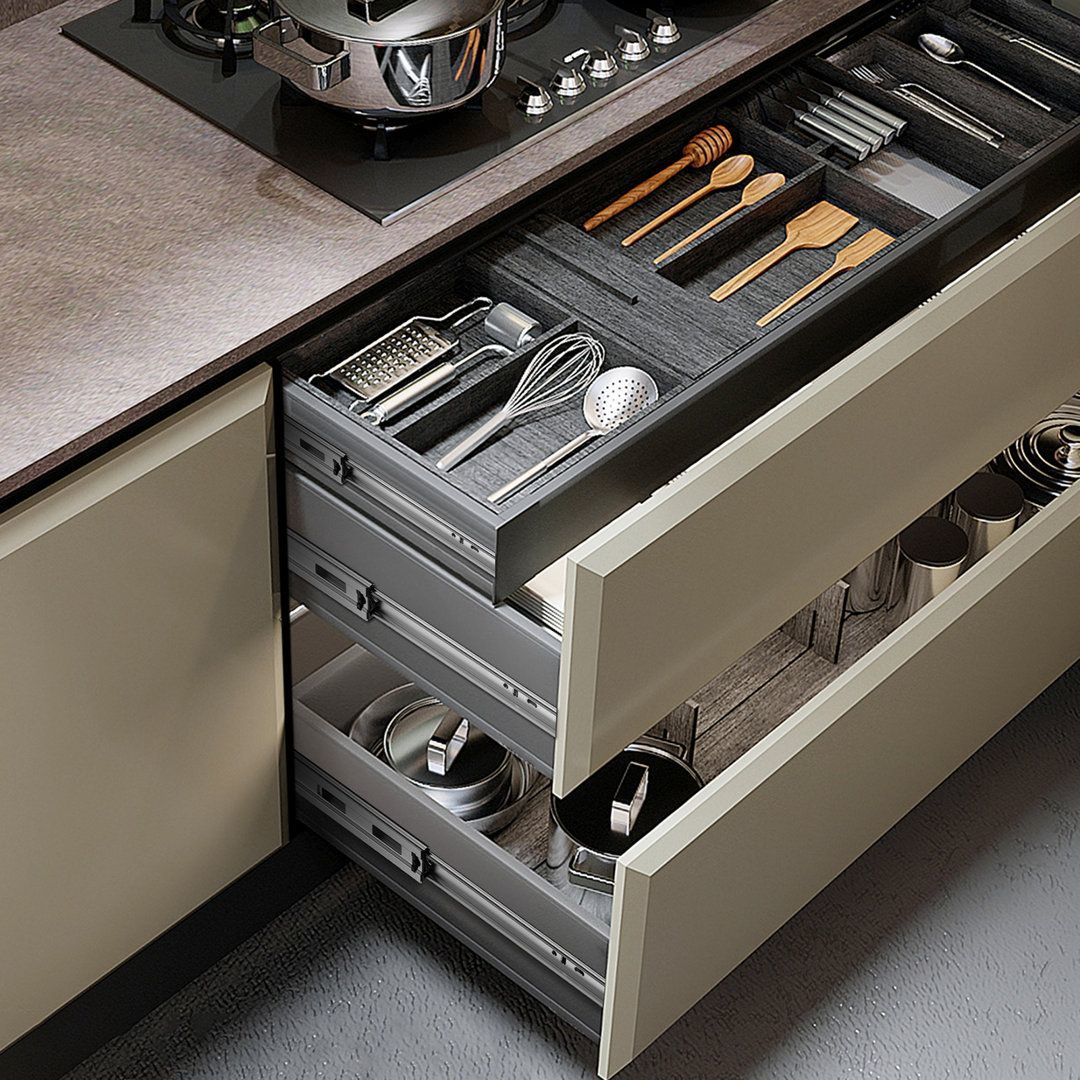
How Often Should You Lubricate Metal Drawer Slides?
发布时间:
2025-08-11
Metal drawer slides—whether they are ball bearing, undermount, or metal box systems—are essential for smooth, reliable drawer movement. But like any mechanical component, they require occasional maintenance to stay in top condition.
Metal drawer slides—whether they are ball bearing, undermount, or metal box systems—are essential for smooth, reliable drawer movement. But like any mechanical component, they require occasional maintenance to stay in top condition.
In this article, we’ll cover two key questions:
How often should drawer slides be lubricated?
What causes sticking, squeaking, or noisy drawer slides—and how to fix them?
How Often Should You Lubricate Metal Drawer Slides?

The frequency of lubrication depends on the type of slide, usage level, and environmental conditions. Here's a general guideline:
Slide Type | Lubrication Frequency |
Ball Bearing Slides | Every 6–12 months (or as needed) |
Undermount Drawer Slides | Every 12 months or less |
Metal Box | Usually factory-lubricated; only if noisy |
Best Practice:
If you hear squeaking, feel resistance, or notice the drawer is not gliding smoothly, it’s time to lubricate—regardless of the calendar.
Recommended Lubricants:
Silicone-based spray (non-greasy, long-lasting)
White lithium grease (for heavier-duty applications)
Avoid WD-40 as a long-term solution—it evaporates quickly and is better for cleaning than lubricating.
What Causes Sticking or Noisy Slides?
Even high-quality drawer slides can develop issues over time. Here are the most common causes—and how to fix them:
1. Dirt and Debris Buildup
Problem: Dust, crumbs, or grease buildup can clog the slide mechanism.
Solution: Clean the slides using a soft cloth and mild cleaner. For stubborn buildup, use a small brush or compressed air.
2. Lack of Lubrication
Problem: Metal-on-metal contact without lubrication creates friction and squeaking.
Solution: Apply a light coat of silicone spray or grease along the moving rails. Wipe off any excess to prevent attracting dirt.
3. Misalignment
Problem: Slides that are installed unevenly or shift over time can cause binding and noise.
Solution: Check both slides with a level. Loosen mounting screws, realign, and retighten. For undermount slides, adjust the locking device or front height adjuster.
4. Worn or Damaged Slides
Problem: Ball bearings may fall out or slide rails can bend with heavy use.
Solution: Inspect for visible damage. If parts are deformed or worn, replace the entire slide set. Lubrication won’t help in this case.
5. Overloading
Problem: Exceeding the rated load capacity can cause drawers to drag or derail.
Solution: Lighten the drawer load and check the manufacturer’s recommended weight limit. Upgrade to heavy-duty slides if necessary.
Maintenance Tips to Extend Slide Life
Keep drawers clean inside and out—spills and particles can easily get into the mechanism.
Avoid slamming drawers, even if they’re soft-close.
Don’t exceed the rated load capacity for your drawer slides.
Inspect slides every 6 months, especially in high-use areas like kitchens or office desks.
Final Thoughts
Drawer slides are designed to last, but routine maintenance can make a big difference in long-term performance. By lubricating regularly, cleaning thoroughly, and addressing small issues early, you can keep your metal drawer slides gliding smoothly and quietly for years.
If you’re unsure what type of lubricant to use or how to fix a specific problem, reach out to your drawer slide manufacturer or supplier for model-specific advice.
相关新闻
undefined
NAVIGATION LINK
2023 © HD Hardware Co., Ltd. All rights reserved. Website: WWW.300.CN SEO




